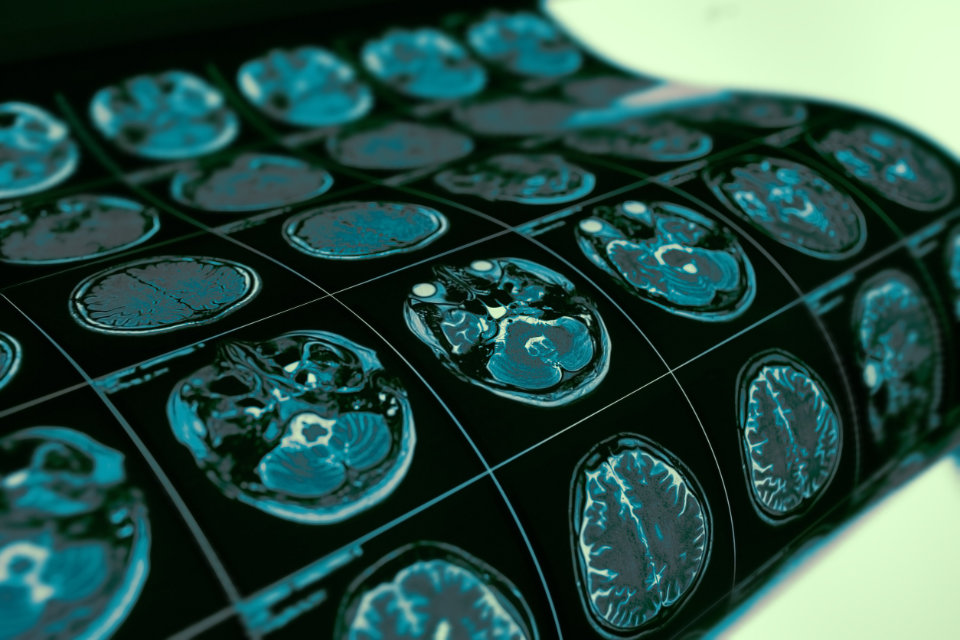Dementia is a syndrome, not a disease and is a general term for a decline in mental ability severe enough to interfere with daily life.
It affects people of all ages but is most common in older adults. Early signs of dementia can be subtle and gradual, so it’s important to know what to look for.
Study shows that taking regular physical exercise appears to be one of the best things that you can do to reduce your risk of getting dementia.
Although there are currently no cure for dementia, but we can find out more about the causes of dementia and how running can help to reduce the risk of getting dementia.
What Are The First Signs of Dementia?
The first signs of dementia are usually subtle and may include memory problems, confusion, difficulty finding words, changes in behavior or personality, and difficulty with problem-solving or planning.

As dementia progresses, other symptoms may appear, including difficulty walking; incontinence; delusions or hallucinations; agitation, and aggression.
These symptoms can progress into:
- Difficulty with regular daily activities
- Problems controlling emotions or behavior
- Difficulties with language and communication
- Inability to understand visual information
| Early signs | Progressive signs | Advanced Stages |
|---|---|---|
| • Complains of forgetting location of objects • Subjective word finding difficulties • Forgetting the name of acquaintances • Some difficulty concentrating | • Start repeating questions or telling a story over and over • Concentration becomes more difficult • Unable to perform overly complex tasks like organising a party or doing their own taxes • Starts forgetting recent or major events • Has trouble remembering what month or year it is • Confusion • Suspiciousness • Wandering • Hallucinations | • Depression • Aggression • Start losing their ability to speak • Severe mobility issues |
How Long Do People Survive with Dementia?
The length of time a person can live with dementia depends on the type, severity, and associated medical conditions and varies greatly from person to person.
An example, dementia caused by Alzheimer’s disease, is progressive, and there is no dementia cure.
The average life expectancy data for the common types of dementia are:
- Alzheimer’s disease – about 8 to 10 years. If the person is diagnosed in their 80s or 90s, life expectancy decreases. Some people with Alzheimer’s live longer, sometimes 15 or even up to 20 years.
- Vascular dementia – about 5 years. That’s lower than the Alzheimer’s average, largely because people with vascular dementia are more likely to die from a stroke or heart attack than from dementia itself.
- Dementia with Lewy bodies – about 6 years. That’s slightly lower than the average for Alzheimer’s disease. The physical symptoms of DLB can increase a person’s risk of falls and infections.
- Frontotemporal dementia – Around 6 to 8 years old. When a person has FTD along with motor neuron disease (a movement disorder), their dementia tends to progress more quickly. The average life expectancy of a person with both disorders after diagnosis is about 2 to 3 years.
Did you know that dementia is the fifth leading cause of death globally, with the number of cases expected to triple over the next 30 years.
How Can You Get Dementia?
Dementia develops when the brain is damaged by diseases such as Alzheimer’s disease, a stroke or loss of nerve cells and their connections in the brain.
Other causes of dementia may include head injury, alcohol misuse, diseases such as Parkinson’s disease, Creutzfeldt-Jakob disease, Huntington’s disease, and medication reactions.

Is Dementia Hereditary?
Many people with dementia worry that they will pass on dementia however research shows that most dementias do not run in families. There may be a strong genetic link to rare types of dementia, but this accounts for only a small percentage of total dementia cases.
But if someone has Alzheimer’s disease at an earlier age (for example, under age 60) or more than one family member has the illness, they are more likely to have heritable Alzheimer’s disease.
With few rare exceptions, parents cannot pass vascular dementia on to their children. However, parents can pass on certain genes that increase the risk of vascular dementia.
Frontotemporal dementia (FTD) is relatively rare compared to Alzheimer’s disease or vascular dementia, but it can be passed directly from parent to child.
Other rare types of dementia that can run in families are Huntington’s disease and Familial Prion disease. These diseases have a 50% chance of being inherited because they are caused by a defective “dominant” gene.
What Causes Dementia?
The exact cause of dementia is unknown, but several risk factors can increase the risk of developing dementia. These risk factors include:
- Age: dementia is more common in older people
- Genetics: some types of dementia are hereditary
- Health conditions such as stroke and diabetes
How To Prevent Dementia, and Possible Dementia Cure?
There is no sure way to prevent dementia and as mentioned dementia is caused by different diseases, hence it is unlikely that there will be a single cure for dementia.
However, there are lifestyle changes you can make to reduce your risk of getting dementia and help you to live better for a longer period of time. These include:
- Eating a balanced diet
- Exercising regularly, such as jogging, walking, swimming
- Keeping your mind active by reading and learning new skills
- Keep your weight in check with our BMI calculator
- Managing stress
- Be socially active
- Reducing alcohol intake
Dementia vs. Alzheimer’s Disease
Dementia is a general term for symptoms like decline in memory, reasoning or other thinking skills. Many different types of dementia exist caused by different conditions.
Alzheimer’s is a specific brain disease that accounts for 60-80% of dementia cases. So technically, Alzheimer’s is a type of dementia and a cause of dementia.
Alzheimer’s usually impacts the ability to remember new information and learning first as a early symptom of Alzheimer’s.
When Alzheimer’s becomes more severe, symptoms can include confusion, behaviour changes and disorientation which subsequently lead to difficulty in eating, speaking and even walking.
Both dementia and Alzheimer’s are not a normal part of aging.
Can Running Prevent or Protect Against Dementia?
Studies have shown that running can reduce dementia risk. Running triggers the release of certain chemicals in the brain, like endorphins and serotonin, which help to improve mood, reduce stress, and improve memory.
Additionally, running builds connections in your brain and increases blood flow to your brain, keeping it healthy.
Other ways running and other form of vigorous exercises could help protect against developing dementia include:
- Improves cognitive skills and decision-making
- Boosts activity of nerve cells in the brain
- Increases grey matter volume, where dementia effects originate
- Reduces stress hormones like cortisol, which can lead to dementia
- Lowers risk of stroke, which can cause dementia
- Improves overall physical health, reducing dementia symptoms.
Is There Other Way to Prevent or Lower the Risk of Dementia?
Major studies have shown that physical activity like running can be beneficial in reducing dementia risk. The Alzheimer’s Association points to research showing an improvement in cognitive function and a reduced risk of dementia among physically active individuals compared to sedentary individuals.
A study published in the Journal of American Geriatrics Society found that older adults who engaged in moderate to intense exercise for at least 45 minutes per day had a significantly lower dementia risk than those who didn’t exercise.
The American Heart Association also notes that regular physical activity can decrease your risk of dementia by up to 40%.
Further studies suggest that running increases blood flow and oxygenation to the brain, leading to improved cognitive performance and dementia prevention.
Running also boosts “good” cholesterol levels, which helps reduce the risk of dementia by reducing the buildup of plaque in arterial walls that can lead to dementia-related cognitive decline.
Research has also found that running can help to improve the quality of life among dementia patients. One study published in the British Journal of Sports Medicine found that dementia patients who participated in a 12-week regular running program improved their quality of life, measured by physical and mental function tests.
In conclusion, regular running may lead to dementia prevention or improved outcomes for dementia patients.
Further research is needed to fully understand the benefits of running for dementia prevention and treatment. However, current evidence suggests running may be an effective dementia prevention strategy with additional physical and mental health benefits.
Do you want to add more fun to your running? Why not join a virtual race where you can share your running experience with a global active community and at the same time earn some cool race awards.
More About Dementia
What is life expectancy with dementia?
On average, people with dementia live 5 to 10 years after diagnosis. Some people with Alzheimer’s live longer, sometimes up to 20 years.
What is the main cause of dementia?
Alzheimer’s disease is the most common cause of dementia in humans.
What is difference between dementia and Alzheimer's?
Dementia and Alzheimer’s are not the same. Dementia is a general term used to describe symptoms that affect memory, daily activities, and communication. Alzheimer’s disease is the most common form of dementia. Alzheimer’s disease worsens over time and affects memory, language and thinking.
Can dementia be reversed or stopped?
Although there is currently no cure for dementia, there are many ways we can slow the progression of the disease, such as: regular exercise, eating a healthy, balanced diet and stress management.





